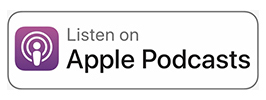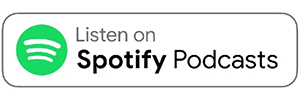Don’t let upfront home buying costs surprise you
After a decade in lending, mortgage expert Shivani Peterson says the biggest challenge for first-time home buyers is not accounting for all the cash they need to close the deal.
“That seems to be an obstacle so many face even when they qualify for a mortgage. Their credit looks good and they have the income to qualify in the price range they want… [but they] forget that the down payment isn’t the only thing you need in order to purchase a home,” she said.
Peterson covered down payments, closing costs, and other upfront costs of buying a home on a recent episode of The Mortgage Reports Podcast. Here’s what she had to say.
Verify your home buying eligibility. Start hereListen to Shivani on The Mortgage Reports Podcast!
How much do you really need for a down payment?
Many first-time home buyers see the down payment as their biggest barrier to homeownership. Saving money can be difficult — and saving up enough for the property you want could be harder still.
Unless you’re using a USDA loan or VA loan — both of which require no down payment — you’ll have to put something down. But the amount you really need might be less than you expect. In fact, many borrowers can get into a home with as little as 3% or 3.5% down these days.
Peterson implores borrowers to try and buy as soon as they’re financially able and not wait until they save the old (and possibly outdated) standby of 20% for a down payment.
“The longer you wait saving up, the more homes are costing. I would rather you get into something sooner rather than later so that you can start taking advantage of home prices appreciating,” Peterson explains.
It’s also important to know that you may qualify for grants and other assistance programs as a first-time home buyer. These vary from state to state, so ask your loan officer or local housing finance authority which programs you might be eligible for.
Check your home loan options. Start hereLesser-known home-buying costs
As Peterson reminds home buyers, the down payment isn’t the only upfront cost you’ll need to save for. Borrowers also need to set aside another 2%-5% of the purchase price on top of that for closing costs.
1. Closing costs
Typically, closing costs include third-party services like the appraisal, home inspection, title fees, and escrow fees. Plus, you need to pay lender fees that go to your loan officer and the lender’s underwriting and processing teams. You’ll also pay upfront for any discount points you purchase to buy down your interest rate.
2. Prepaid items
Closing costs include “prepaid items,” too, which take many first-time buyers by surprise. Prepaids are your first few months worth of homeowners insurance premiums and property taxes, paid upfront.
Lenders usually require these payments to be stowed in an escrow account to make sure your taxes and insurance will be paid in full during your first year of homeownership. (If you put at least 20% down, escrow is typically not required.)
Prepaid costs can be substantial (in the thousands), but they differ depending on geography and the companies you work with. Peterson recommends that once you get preapproved, you have your lender walk you through the “cash to close” section of your loan offer so you understand exactly what you’ll need to pay in upfront fees.
3. Homeownership costs
Additionally, you should consider the costs associated with homeownership. As a renter, landlords take care of maintenance and repairs. But those responsibilities transfer to you once you buy a house.
“When you own the home, you’re the one who needs to fix the A/C if it goes out, or the water heater, or any sort of plumbing issue. You want to have a little money set aside for that stuff,” Peterson said.
You’ll also want to account for any moving fees you’ll pay to get into the new place. You don’t want to empty your savings buying a house only to find yourself scrambling for cash as a new homeowner.
Advice for new home buyers
Saving up to buy a home can be intimidating, especially in the face of rising property values. However, there are ways to afford more house even with limited cash. And Peterson provides a handful of helpful tips to get your finances in good shape before buying.
If you’re in the market to buy your first house, reach out to a local lender or real estate professional to begin your path to homeownership.
Time to make a move? Let us find the right mortgage for you

